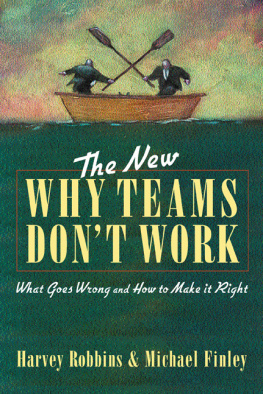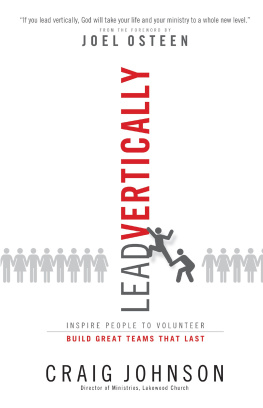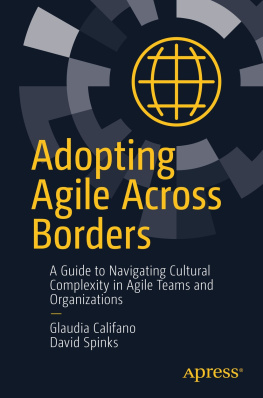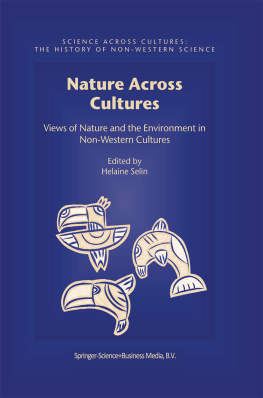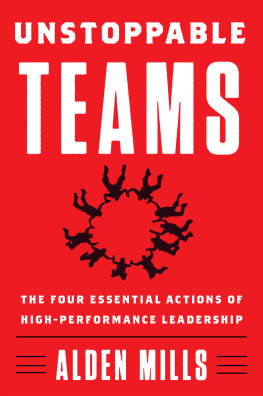Our Story
For the next generation
Ashton, Maquah, WinstonH, Tayamni, Chetan, Alexa, Elizabetta, WinstonN, K'nek'nek, Repoy, and Theodore
Our Story
How Cultures Shaped People to Get Things Done
W. Penn Handwerker
First published 2015 by Left Coast Press, Inc.
Published 2016 by Routledge
2 Park Square, Milton Park, Abingdon, Oxon OX14 4RN
711 Third Avenue, New York, NY 10017, USA
Routledge is an imprint of the Taylor & Francis Group, an informa business
Copyright 2015 Taylor & Francis
All rights reserved. No part of this book may be reprinted or reproduced or utilised in any form or by any electronic, mechanical, or other means, now known or hereafter invented, including photocopying and recording, or in any information storage or retrieval system, without permission in writing from the publishers.
Notice:
Product or corporate names may be trademarks or registered trademarks, and are used only for identification and explanation without intent to infringe.
Library of Congress Cataloging-in-Publication Data:
Handwerker, W. Penn.
Our story: how cultures shaped people to get things done / W. Penn Handwerker.
pages cm
Includes bibliographical references and index.
ISBN 978-1-59874-677-8 (hardback) -- ISBN 978-1-59874-678-5 (paperback)-
ISBN 978-1-59874-679-2 (institutional ebook)
1. Culture--Origin. 2. Social evolution. I. Title.
GN357.5.H363 2015
306--dc23
2014032134
ISBN 978-1-59874-677-8 hardback
ISBN 978-1-59874-678-5 paperback
Contents
Living Requires Many Cultures;
Thriving Requires They Be Well-Designed |
On the Properties of Mind
That Produce Agency |
Cultures Aren't Merely Curiosities
and How "Others" Think and Act |
Homer Barnett and Clifford Geertzfor pointing out that cultures come from our minds;
Marvin Harrisfor reminding me that humans cannot survive, much less evolve, unless they act;
W. P. Handwerker II and Joe Jorgensenfor illustrating the inseparability of truth and integrity and evidence;
Rose Jones, Catherine Fuentes, and Richard Wilsonfor the challenge to precisely describe how cultures exercise coercive force;
Roy D'Andradefor helping me to see that the former counted as an important challenge and for the language to both describe cultures more precisely and see more clearly how they work;
Russ Bernardfor pointing out key issues I left out the first time through; and
Willamette University c. 19621966, particularly Drs. Baker (English), Stillings (Political Science), Paulin (Art History), Rademaker (Sociology), and Tod Mikuriya (Oregon State Hospital), for insisting on truth-seeking through critical analysis of evidence, calling my attention to the issues addressed in this book, and challenging me to put the pieces together.
Introduction
Still Looking After All These Years ~ 150 Years! Drives You Crazy
Adam Smith's The Wealth of Nations (1776) nicely rationalized what we know intuitively, that flourishing lives come from conscious, rational decisions.
We now know that this intuition is pure fantasy, told to us by an integral part of our brain that tells stories. We reason, certainly, but biases make it impossible to make a rational choice. Consciousness of which choice we made occurs after the fact. Ordinarily, moreover, we remain blissfully ignorant of the biases that direct the course of our lives.
True, rational choice theories provide powerful explanations in the social and behavioral sciences. These theories assume that the weighted average of preferences and the likelihood of their realization explain why people choose one thing over another. Real-world choices, however, depend heavily on availability heuristics, confirmation biases, evaluations based on likeness rather than likelihood, overestimates of the likelihood of rare events, and many forms of "irrelevant" information. If, for example, we frame a choice as a loss, we discount real risks; if we frame a choice as a gain, we exaggerate the same risks. Not only do real-world choices exhibit predictable "irrationalities," rational choice theories cannot explain preference. Bueno de Mesquita's rational choice model, for example, achieves remarkably accurate predictions, but these depend on accurate empirical knowledge of decision-maker preferences, not a theory of preferences. Consequently, rational choice deterrence theories, which start from the familiar premise that strength deters violence and weakness elicits it, inconsistently identify deterrents and do not tell us what makes a threat credible. Empirical tests thus may provide only ambiguous support, and policies based on these theories rarely (if ever) work well
How, then, have we thrived? It took ~99,800 of the last 100,000 years to produce a human population of 1 billion. But we added 6 billion more in just 200 years. If we can't make conscious, rational decisions, how is this increase possible?
Simple. Human minds contain a set of coevolved mental mechanisms that work together to make it so. First, our minds produce imaginary thingsspeculative postulates that come out of our consciousness in the form a story told by what Michael Gazzaniga called our mind's Interpreter. If the story applies to the world around us, its implications tell us what we should expect of that worldfor example, that the sun rises in the morning and sets in the evening, that living things depend on cells for their construction and operation, and that things that do nothing deteriorate and fall apart. If our Interpreter spins a story that applies to human agency, we call its implications cultural norms. These implications tell us what we should expect from the people we live among and expresses those expectations in a moral vision about what's right and what's not and how to respond to norm violations; for example, you should respect your parents and love your children and go to class on time.
The adaptive value of these cognitive mechanisms depends on the coevolution of a set of cognitive biases to reduce innovation-induced uncertainty, give emotional weights to experiences to differentiate opportunities from threats, and imbue shared moral visions with the power to force compliance with that vision. This set of cognitive biases yields codependencies that produce the teamwork that, for specific behavioral domains, we call cultures. Whereas individuals break easily, teams don't, and they achieve goals that individuals find elusive. Finally, evolved-choice frames give agency to individuals to try new ways when old ways yield dangerous effects. The outcome? A culture-creating and culture-dependent creature with a mind that generates a continual flow of innovations and uncertainties and depends for its well-being on cooperation with other like creatures. Hence, our preferences.
Whats the Point?
This book tells the story about how innovations in human minds created cultures and why the effects of cultures produced increasingly intense selection for the complementary cognitive mechanisms (like language and a whole host of cognitive biases that include wishful thinking, the confirmatory bias, learned helplessness, closure, heuristics, and choice frames) that were required to coevolve with intelligence to make cultures work effectively. Along the way, it explains the origins of morality, how and under which conditions we help or kill our neighbor or family member, and it provides some hints about how we may resolve conflict, minimize violence, and heal from the traumatic stress that will otherwise kill us.




